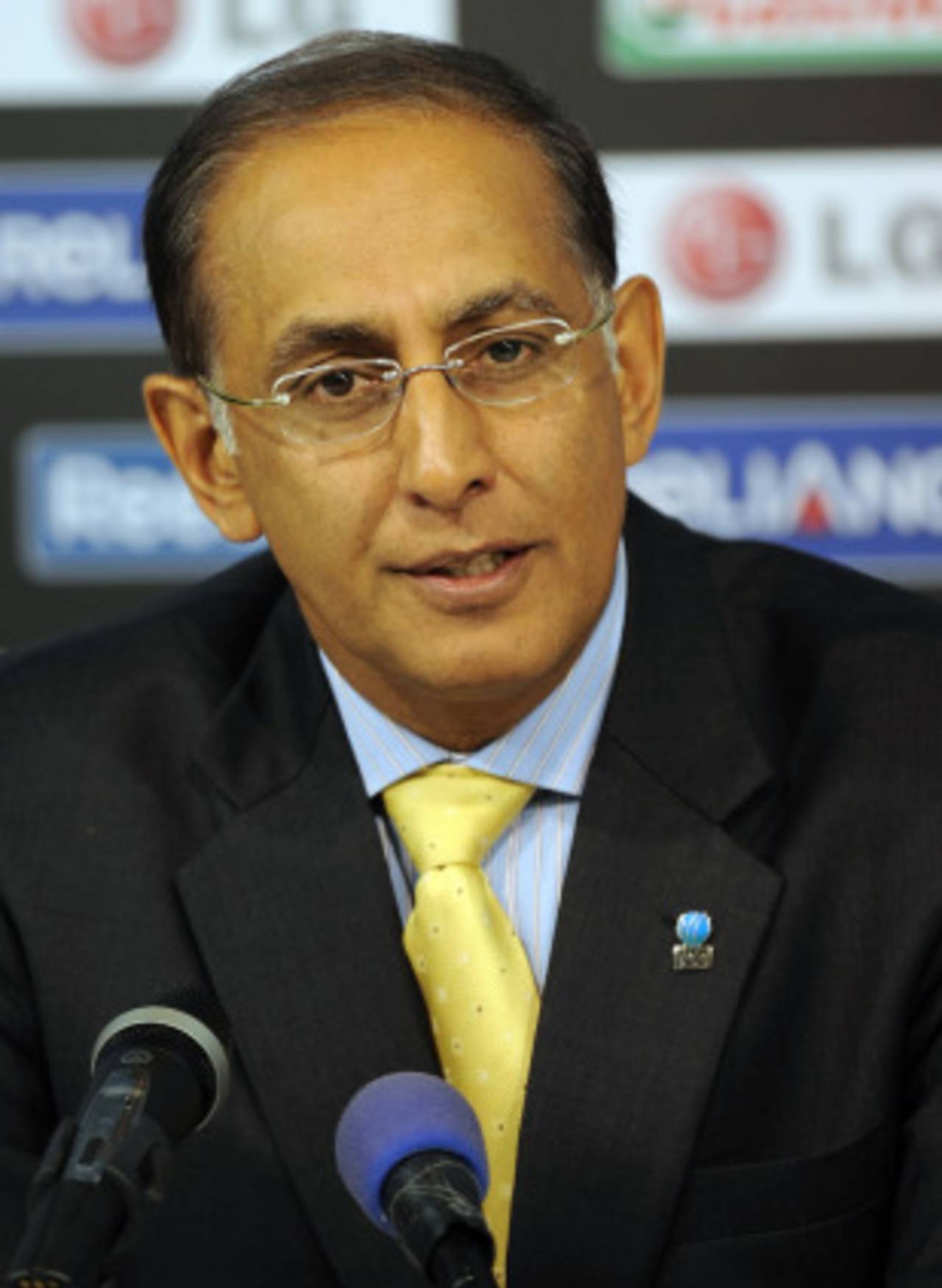ICC moots sponsors to fund revamped DRS
The ICC will look for sponsors for the DRS to overcome the financial hurdles that less wealthy cricket boards will face in implementing the cost-intensive referral system
Sharda Ugra in Hong Kong
Jun 30, 2011, 11:57 AM

The ICC may seek a sponsor to fund DRS, Haroon Lorgat has said • AFP
The ICC will look for sponsors for the DRS to overcome the financial hurdles that less wealthy cricket boards will face in implementing the cost-intensive referral system now mandatory in international cricket.
"There is the possibility that we could raise a sponsor to cover the cost of the DRS," ICC CEO, Haroon Lorgat, told ESPNcricinfo. The chief executives' committee agreed on Monday to make a modified version of DRS mandatory in all internationals, with the use of the ball-tracking technology made optional, and Lorgat said he could see a situation "where we may well cover all costs of the technology".
The cost of the DRS is currently estimated at $5000 per day, with broadcasters, technology providers and home boards in a constant debate about who should bear the cost.
The minimum requirements for the tweaked DRS are the expensive infra-red cameras and the audio tracking devices, and Lorgat said the resulting uniformity - which doesn't exist in ball-tracking technology - was adequate to seek commercial support for the system. "It is still sufficient to be able to commercialise it and find a sponsor that would be interested."
The uneven acceptance of the DRS in the past, with the BCCI resisting its implementation in bilateral series involving India, had made financial backing for the system difficult, Lorgat said. "You cannot sell a product if there's uncertainty around its use and that was a stumbling block in the past."
Lorgat said he did not believe that the new ruling, which omitted the ball-tracker technology from the list of mandatory requirements, would make the system inconsistent. The ICC, he said, had worked its way through a process that had begun with differences over an aspect of the review system and was keen to address the concerns of its doubters, in this case the BCCI. "It is incumbent on all of us who are trying to implement (it) and trying to find agreement to work towards getting there ... if that means we have to convince certain people who are unconvinced about the accuracy and the reliability of the ball-tracking technology, that's what we have agreed to do. But where we have got absolute agreement, we've all agreed to install that."
The question of using only one part of the ball-tracker technology, like the pitch mat to check where the ball had landed, was not raised, Lorgat said, "There wasn't complete satisfaction with the use of the ball-tracking technology and we've just left that out."
The use of the ball-tracker based on bilateral agreements between boards, Lorgat said, would let those who believed in its veracity use the system. Over the next few months, he said the ICC would carry out an independent assessment to provide the back-up of the ball tracker's accuracy and reliability. "I think we must just be patient for the next few months until we've done that exercise and hopefully we come to a point where everybody is satisfied with its accuracy."
The assessment, he said, would be thorough, because "if there are people who are happy or unhappy about the technology, we have got to disprove that and so I'm not keen to take (only) elements of it (the ball tracker) before we come up with a scientific evaluation." He said there was no time-frame for this assessment of the ball tracker.
Sharda Ugra is senior editor at ESPNcricinfo